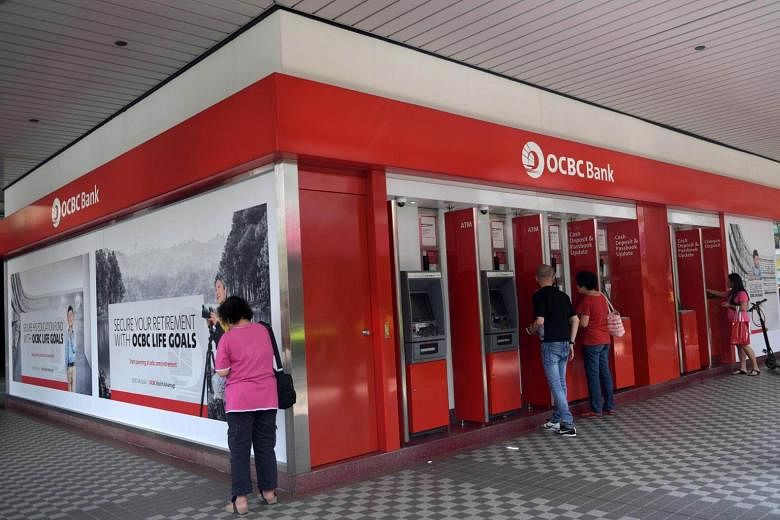SINGAPORE - OCBC Bank on Monday (Aug 6) reported a net profit of $1.21 billion for the second quarter of 2018, climbing 16 per cent from $1.04 billion a year ago, even as CEO Samuel Tsien warned that the operating environment is becoming "increasingly challenging and we are watchful of the severe implications to the global economy and financial markets from the escalating trade and political tensions".
The results topped the S$1.12 billion consensus forecast in a Bloomberg survey of four analysts.
OCBC is the last of Singapore's Big Three banks to report results. The biggest bank, DBS Group Holdings, missed market expectations while the smallest lender, United Overseas Bank, beat estimates.
Shares of all three lenders rose on Monday morning, led by OCBC which was up 2.7 per cent to $11.66 at 10:50am. UOB shares were two per cent higher at $27.11 while DBS rose 1.3 per cent to $26.46.
OCBC said its higher earnings were driven by strong performance across each of its banking, wealth management and insurance businesses. Strong loan growth and higher net interest margin drove second-quarter net interest income to a new high of $1.45 billion, which was 8 per cent above the $1.35 billion a year ago.
Average customer loans grew 11 per cent, driven by broad-based growth across most industries and geographical segments. Net interest margin (NIM) expanded two basis points to 1.67 per cent from 1.65 per cent a year ago, boosted by higher asset yields in Singapore and Malaysia which saw higher NIMs in both markets, more than offsetting higher funding costs in the rising interest rate environment.
Non-interest income in the second quarter was $1.02 billion, an increase of 2 per cent year-on-year. Led by growth in wealth management, trade-related and investment banking fees, income from fees and commissions rose 5 per cent to $518 million. Net trading income, mainly comprising treasury-related income from customer flows, increased 37 per cent to $192 million. Net realised gains from the sale of investment securities were lower at $2 million as compared to $54 million in Q2.
Profit from life assurance was $191 million against $195 million a year ago. Great Eastern Holdings' total weighted new sales grew 28 per cent to $327 million, driven by higher sales in Singapore, and new business embedded value was up 8 per cent to $140 million. Operating expenses increased 4 per cent to $1.04 billion from $993 million for Q2 2017, reflecting an increase in staff and technology-related expenses.
Total allowances for loans and other assets for Q2 were $21 million - $9 million higher quarter-on-quarter but significantly lower than the $169 million a year ago when allowances were set aside for corporate accounts in the oil-and-gas support vessels and services sector. The asset quality of the loan portfolio was stable. Total non-performing assets of $3.51 billion as at end-June 2018 were slightly higher than the $3.45 billion for the previous quarter, and the non-performing loans ratio remained stable quarter-on-quarter at 1.4 per cent.
An interim dividend of 20 cents per share has been declared for the first half of 2018, two cents higher than the 18 cents interim dividend declared a year ago. The scrip dividend scheme will give shareholders the option to receive the dividend in the form of shares at a 10 per cent discount to the average of the daily volume-weighted average prices from Aug 15 to 17, 2018.
OCBC said the recent property cooling measures have "dampened sales" a bit, having seen a slowdown in activities by about 10 per cent in the month of July, according to the bank's chief operating officer Ching Wei Hong.
Speaking at the results briefing, Mr Ching, who is also head of global consumer financial services, noted that the bank still expects an overall home-loan growth at a low to mid single-digit percentage this year.
To be sure, he noted that there is no "complete collapse" of the market, noting that there remains fairly resilient demand from first-time homebuyers. The bank also expects greater impact to come from overall new loan origination in about two years from now.
"But I don't think we'll see the same exuberance" in the first half, he added.

